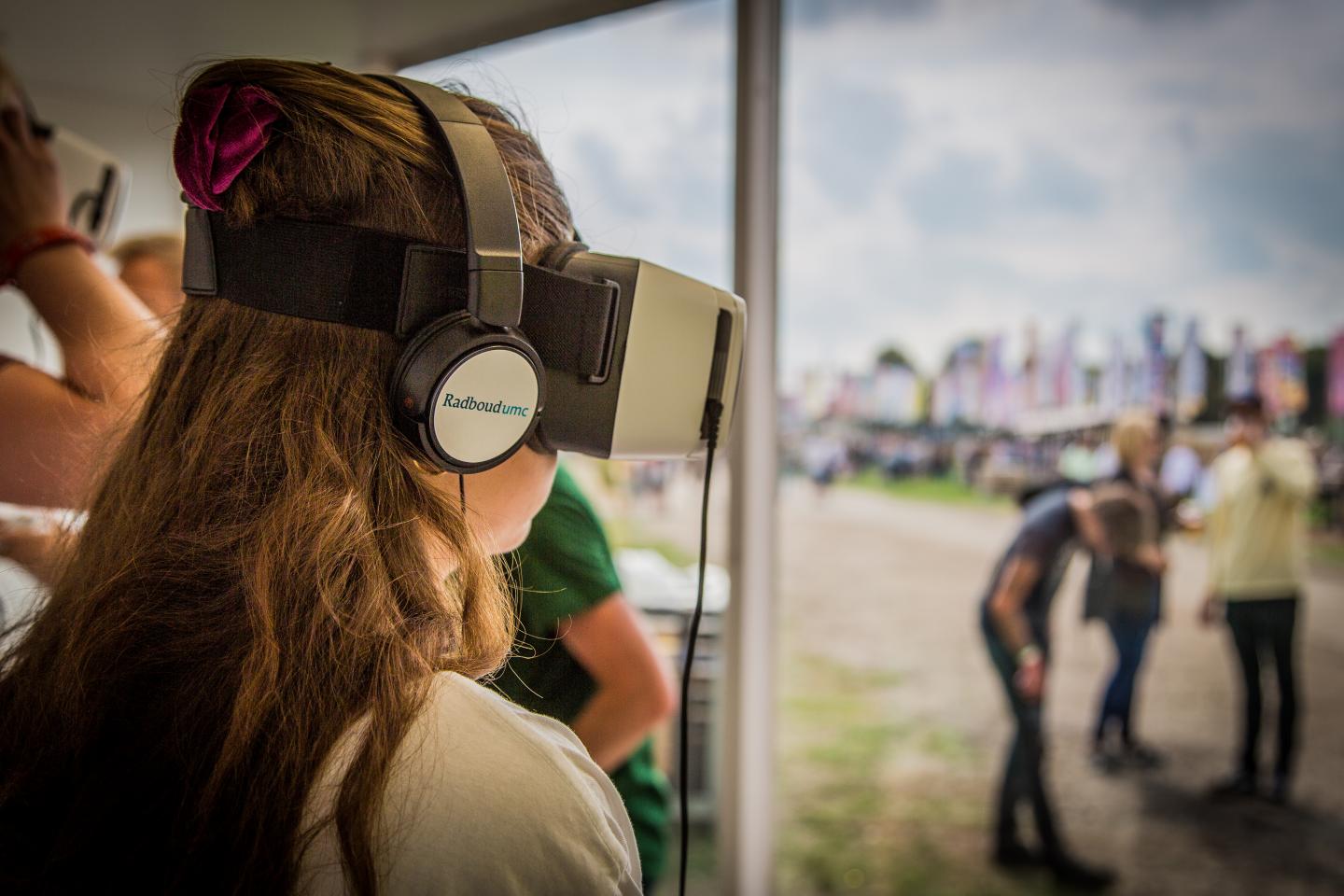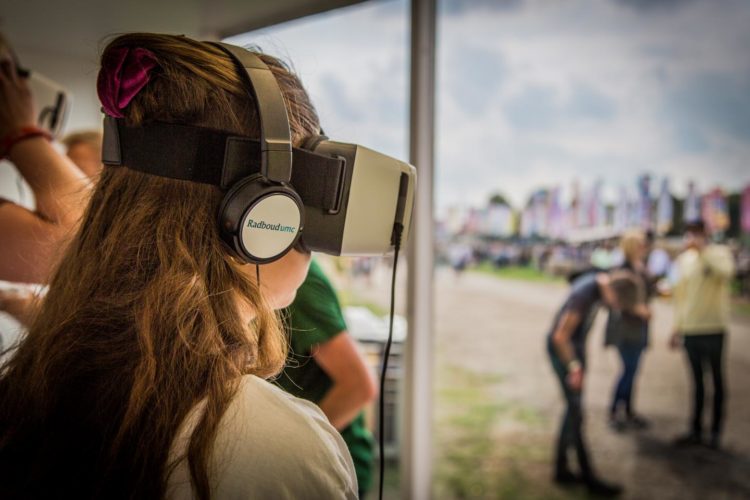Cardiologists at Radboud university medical center performed a research project during a large music festival called Lowlands, in the Netherlands in August 2019. The first results of this innovative study are now published in JAMA Cardiology.

Credit: Boy Rozenburg
The study, Lowlands Saves Lives, compared the effect of twenty minutes of CPR training by a certified trainer with a training session of the same duration using a free downloadable virtual reality (VR) app (created by Lifesaver, UK Resuscitation Council). The participants were 381 Lowlands visitors, who were randomized to these two groups. Both groups then had to take an exam with an examiner who didn’t know which form of training they had undergone. The study was prompted by the hope that an app could assist a broader and faster spread of CPR skills among the general population. This is because rapid citizen intervention is one of the greatest predictors of survival when it comes to resuscitation.
Almost no difference
The exam mainly assessed two aspects of the resuscitation: the speed and depth of chest compressions. The ideal is 120 compressions per minute at a depth of 6 cm. The study showed that the VR group performed just as well as the trainer group in terms of speed, but slightly less well for the depth of compressions. “This result is relative and should be seen against the current standard of CPR training,” says project leader Joris Nas. “Some participants in the VR group actually achieved better results than would be expected after a four-hour regular training session. In fact, more than half of all participants met the requirements for a four-hour training session after just twenty minutes of training.”
Refresher course with VR
The researchers also collected other participant characteristics, including previous experience with CPR training or being a healthcare professional. The analysis shows that the two types of training were entirely equivalent for this sub-group. Marc Brouwer, team member and a cardiologist at Radboud university medical center: “It’s great to see that virtual reality worked so well for this group. The app still has to be optimized for untrained people but for people with experience, it could mean that 20 minutes of VR training works just as well as a refresher as a four-hour course with a trainer. Because a refresher course is an annual requirement, this could lead to enormous savings in time and costs.”
The value of public research
Marc Brouwer looks back on a successful participation in the music festival: “Thanks to Lowlands, we were not only able to carry out a good scientific study, but we also managed to bring resuscitation to the attention of a large group of people. Almost 400 people learned how to do it. If you then hear people say enthusiastically ‘that was really good, thanks’, it means we’re a step closer to our goal.” More than eighty percent of the participants have already indicated their willingness to take part in a follow-up study, which will begin in January.
###
Media Contact
Stephan van Duin
[email protected]
31-624-592-770
Related Journal Article
http://dx.





